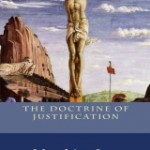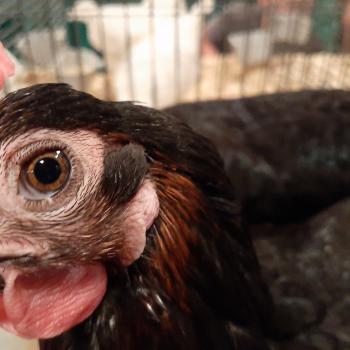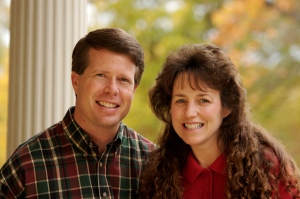
“For the first time I examined myself with a seriously practical purpose. And there I found what appalled me: a zoo of lusts, a bedlam of ambitions, a nursery of fears, a harem of fondled hatreds. My name was legion.” — C.S. Lewis
I have been catching up on all of the news and controversy surrounding the sexual abuse scandal involving 19 Kids and Counting star Josh Duggar.
Yesterday, I came across a provocative post at Pastor Tullian Tchividjian’s Liberate website entitled “We are all the Duggars”.
I appreciate what the authors of the piece were trying to communicate – namely, as I said in a comment, “None of us can stand before God by our righteousness. Christ is our only hope. This is the message by which the church lives and breathes.” (you see, I would have appreciated their piece more if the two comments I had left on the post would have made it up on the site!).
I am always eager to communicate the radical grace that Jesus Christ has for sinners – Josh Duggar included. We can be sure that whatever happens to us in this life – however much the world may condemn us – we can have peace with the God of the universe now and forevermore through His own blood (see Romans 8). Through Jesus Christ, death, sin, and the demonic all ultimately find their deserved end.
That said, in the piece the authors assert: “We are no better than the world is. Nor should we claim to be.” Elsewhere, one of the authors says that “He is not making us better people but unveiling how bad we are that we may find in Christ the riches of our Father’s goodness.”
That sounds like humility and a welcome lack of self-righteousness. There is a glaring problem here though and that is that it is completely discounting the work that God has done through good Christian people. People who, according to the 17th century Lutheran saint John Gerhard, say to their sweet Lord Jesus: “Sins were sweeter to me than honey and honeycomb. That they are now pungent and bitter, I owe to You who gave me spiritual taste…”
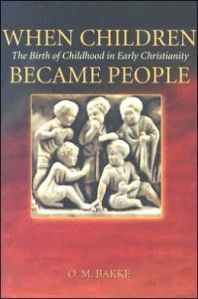 Could it be that the condemnation of Josh Duggar’s sins would be unthinkable apart from Christianity’s influence? I think so.
Could it be that the condemnation of Josh Duggar’s sins would be unthinkable apart from Christianity’s influence? I think so.
This becomes very clear as one examines the historical evidence of how Christianity has changed views about children. In an article at “The Week,” Pascal-Emmanuel Gobry says:
“Today it is simply taken for granted that the innocence and vulnerability of children makes them beings of particular value, and entitled to particular care…[but] this view of children is a historical oddity.”
Jumping off of Gobry’s article, Eric Metaxas says:
Gobry points to the work of historian O. M. Bakke, whose book “When Children Became People” documents how radically Christianity altered the practices of ancient Greece and Rome, and what the world before Christ looked like.
Children, he says, were considered nonpersons. In the cultures of Alexander the Great, Julius Caesar, and Pliny the Elder, society was organized in “concentric circles,” with the most valuable (freeborn, adult males) in the center, and the least valuable (women, slaves, and children) on the fringes.
From the moment of birth, a child in ancient Rome was as likely as not to die. If disease or injury didn’t end a young life, very frequently the parents themselves did, “exposing” any infants deemed inconvenient. Such children usually fell prey to wild animals or the elements. But as Gobry points out, a few were rescued only to be raised in one of the ancient world’s most lucrative industries: sex slavery.
Today, sexually abusing a child is a serious crime. Not so in the pre-Christian world, writes Gobry. During that time it was legal, and even considered good form, for a married Patrician to keep children—particularly young boys—to exploit sexually in his free time. “[M]ost sexual acts were permissible,” Gobry explains, “as long as they involved a person of higher status being active against or dominating a person of lower status. This meant that, according to all the evidence we have, the sexual abuse of children…was rife.”
Into this world came Christianity, with its condemnation of abortion, infanticide and child abuse, its glorification of faithful marriage, and its teaching that children come first in the Kingdom of Heaven. “Whoever causes one of these little ones to stumble,” said Jesus, “it would be better for him to have a millstone tied around his neck and to be thrown into the sea.”
This ethic, which the Western world takes for granted today, is a direct heritage of Christianity. It rests on the very same beliefs as traditional marriage, chastity, and the sanctity of all life. And secularists who want nothing more than a world free from these constraints of Christian morality, warns Gobry, had better consider—or rather remember—what that world looks like.
Were these first Christians perfect then? With perfect families? They were not perfect – and it does us no good to put up a facade that they were…. And yet, the point is this: they were good… better, than most…
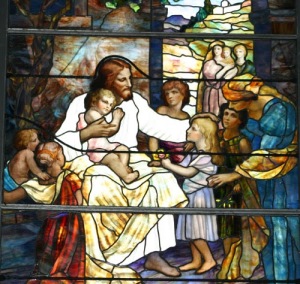 In other words, it was these Christian people who made it possible for persons like the unbelieving C.S. Lewis, for example (see quote above), to begin to realize the depth of his sin. Not only this, but they have helped people around the whole world realize – and deeply feel – that this way of living is good, and that what came before was darkness. It is even in part because of them that there are a lot of non-Christian families that don’t have child abuse or any other number of problems in them.
In other words, it was these Christian people who made it possible for persons like the unbelieving C.S. Lewis, for example (see quote above), to begin to realize the depth of his sin. Not only this, but they have helped people around the whole world realize – and deeply feel – that this way of living is good, and that what came before was darkness. It is even in part because of them that there are a lot of non-Christian families that don’t have child abuse or any other number of problems in them.
I would hope and pray that families that worship Christ would continue to be, in general, the most loving and holy places on earth. I grew up in one of these.
That is why, five years ago, I supported some of Richard Dawkin’s statements against the Roman Catholic Church – because that “cultural Christian” (as he has even called himself) was at least getting this one very important thing right.
I’ll admit that I think that Christians like Matt Walsh have important points to make here. That said, I think it is time for traditional Christians to stop circling the wagons and to deeply reflect on these matters – making some of the same points in a way that will genuinely bring more light (no, we can’t avoid the heat).
FIN
Duggars image: Wikipedia ; Jesus and children image: http://catholic-skyview-tremblay.blogspot.com/2013/12/a-child-is-born-to-us-when-children.html


